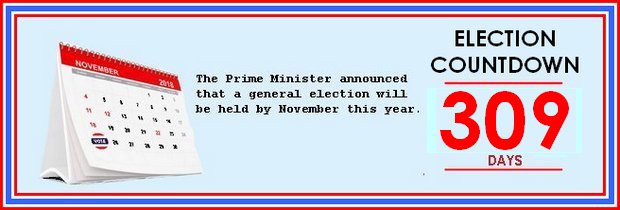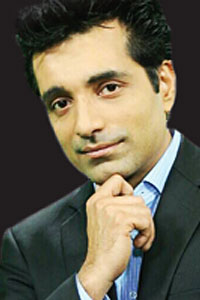
Once again, hopes of an election in November this year seem to be slipping with each passing day -- the latest blow coming courtesy of the National Legislative Assembly (NLA) vote on Friday to change Section 2 of the organic law on the election of members of parliament.
The change means that the bill, once passed, will not come into effect until 90 days after it is published in the Royal Gazette, which could mean that the poll set for later this year will be delayed once again.
Coup leader and incumbent prime minister Prayut Chan-o-cha had promised the country that an election would be held a year after he undertook the coup on May 22, 2014. But as time passed by, the likelihood of an election in 2015 receded while Gen Prayut continued to make promise after promise to the international community; all of which have failed to materialise.

Umesh Pandey is Editor, Bangkok Post.
In 2015 during a visit to Japan, Gen Prayut promised his Japanese counterpart that polls would be held in Thailand early in 2016. Then, as 2016 slipped, Gen Prayut made yet another promise that elections in Thailand would be held in 2017. This was in late September 2016, at the United Nations General Assembly, but in October of the same year Thailand suffered its biggest blow in recent history with the passing of our beloved King Rama IX. The country went through a year of mourning and promises of an election in 2017 seem next to impossible to fulfil.
But then came the much-hyped visit to the United States at the invitation of the then newly elected President Donald Trump. In early October 2017, as autumn was in full swing in Washington, DC, Gen Prayut assured the international community that elections would be held in 2018.
However, just hours after making that promise to the international community, the coup leader met the Thai community in the United States and contradicted his earlier proclamation when he said that elections would actually be held in 2019 and that it may then take a few further months for a government to be formed.
The backlash over this flip flopping prompted Gen Prayut to announce on Oct 10, 2017, that an election would be held by November 2018. Although he did not give an exact date, the fact that November was mentioned was the first time the coup leader had narrowed the window for an election that considerably since taking power in 2014.

But soon after, talk of possible delays started to surface and by the end of 2017 rumours were flying of the various means, such as scrapping the ongoing process of drafting the organic bills, that might be used to facilitate this.
And lo and behold, on Friday, those rumours appeared to be turning into reality.
Speculation is rife that the military government wants to form its own party to enable a return to power after the election, and that all these tactics are aimed at giving this would-be party time to set itself up and gain enough support to fight the big-league parties such as Pheu Thai and the Democrats.
It is also said that the military junta wants more time to formulate policies that will shore up its popularity at the grassroots level. The pledge of 100 billion baht made by in November last year by the government's economic tsar, Deputy Prime Minister Somkid Jatusripitak, does little to disprove the theory.
Although the NLA committee that is vetting the organic bill has denied that it came under pressure from the military government to make the changes that it did, not many people believe these statements.
The NLA, whose members were handpicked by the junta, has over the years been nothing more than a facilitator for whatever its military lords wished and asked for.
With the "road map" that the coup leader set out in 2014 meandering every which way but towards an election, what the military leaders need to realise is that with every promise they break their credibility goes down a notch or two.
Indeed, from being a regional leader Thailand is becoming an also-ran. Gen Prayut and his men in uniform must look beyond their own vested interests to what is best for the country in the long run.
The pent up demand for a return to democracy will only prompt more protests and marches such as those witnessed yesterday. And with each day that the regime delays the election, its popularity is likely wane further, perhaps to the point where it's too late for any of its plans to come to fruition.
